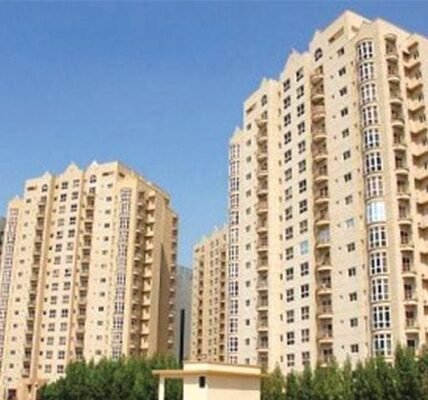What is Property Management? The answer is that a Third-Party Contractor can daily oversight of residential, commercial or industrial state, A Property Manager can take responsibility for day to day ongoing maintenance work, security and upkeep of properties. A Property Manager works for the owner of Investor properties like apartments, private home communities, Shopping centers and industrial parks. The Property Owner pays the property managers fee or percentage of the rent generated by the property.
Property Developers usually aim to start their next project immediately after finishing the current one. Property Management‘s most prime aspect is effective communication. Clear and open communication between property managers, tenants, and property owners is necessary for a successful and smooth operation. This includes timely reply to inquiries, addressing concerns, providing updates on property maintenance, and ensuring all parties are well-informed about policies and expectations. For clear understanding and transparency, good communication is very necessary. This is helpful for tenants and property owners to encourage positive relationships, Additionally, it can prevent misunderstandings and facilitate the resolution of issues before they escalate.
Role of a property manager

Role of Property Manager
- Screening potential tenants involves evaluating their backgrounds and qualifications to ensure they are suitable for the property.
- Drafting, signing, and renewing leases on behalf of property owners, as well as collecting rent, are key responsibilities of property management.
- Maintenance of properties, including landscaping and snow removal
- Arranging for necessary repairs to properties
- Setting up and adhering to budgets for property maintenance
- Understanding state and national landlord-tenant laws and regulations
- Involves promoting and advertising them to attract potential tenants or buyers through marketing.
- Supervision involves a manager and worker meeting regularly to talk about different aspects of their work. The purpose is to discuss workload, support workers wellbeing and to promote staff development.
- A property manager includes managing tax payments, filings, and ensuring compliance with tax regulations.
There are some different types of Property Management as per below details:
| Residential Property Management | Commercial Property Management |
| Industrial Property Management | Specialized Property Management |
Residential Property Management

Residential Property
Residential property management involves confirming tenant satisfaction and property conservation. residential property managers are typically hired for rental properties, and they manage the rental process. Managers handle tenant inquiries, property maintenance, and lease agreements, contributing to high occupancy rates and steady rental income. From screening potential tenants to managing repairs, our residential managers play a crucial role in offering the best residential living experience. There are some types of residential property.
- Apartment
- Town Houses
- Bungalows and Villas
- Single Family Home
- Condominiums
- Duplex
- Manufactured homes
Commercial Property Management

Commercial Property
Commercial Property Management has a key role for business purposes, including Offices, Retail Space and Warehouses.These managers negotiate leases, maintain properties, and ensure compliance with business regulations. Their expertise in managing business tenancies and understanding commercial lease terms is invaluable for property owners aiming to maximize their investments in the commercial real estate market. There Are some types of commercial Property.
- Hotels
- Malls and Shopping Centre
- Farm Land
- Office properties
- WareHouses
- Housing Buildings
- Medical Centre
- Retail Store
Industrial Property Management

Industrial Property
Industrial property management demand is Expertise in industrial operations and real estate. Managers ensure these properties meet specific regulations, maintain safety standards, and are optimized for efficiency. There are some type of Industrial Properties.
- Heavy manufacturing facilities such as automotive plants and steel mills
- Light manufacturing factories such as food packaging
- Research and Development
- Warehouses
- Cold Storage
- Data Centers
Specialized Property Management

Specialized Property
Specialized Property use for real assets designed for a unique use making it difficult to convert to other purposes. Specialized Properties often have special unique features, construction material. There are some example for special purpose management.
- Resorts
- Sports arenas
- Theaters
- Senior care facilities
- Schools and universities
- Places of worship
Conclusion:
Property management is an essential part of the real estate industry and a sure to Choosing the right property management firm can make a major difference in the success of your real estate investment business.







3 COMMENTS